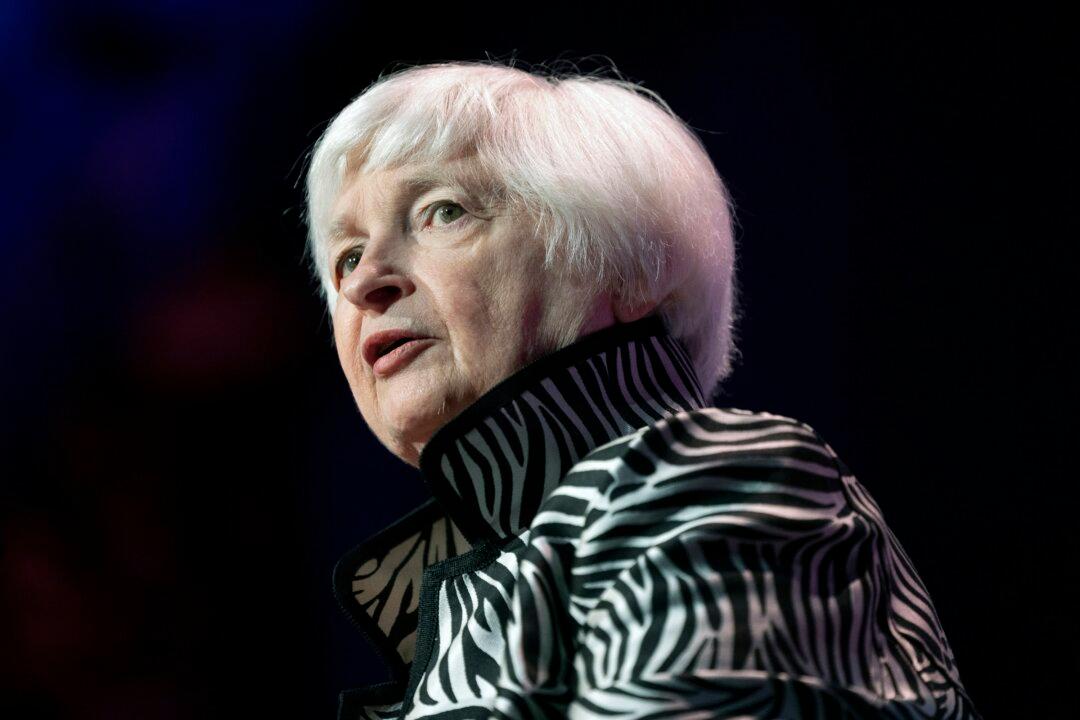The federal government does not need to balance the budget to ensure the United States is on a fiscally sustainable path, Treasury Secretary Janet Yellen said to lawmakers.
Appearing before the House Financial Services Committee on Jan. 6, Ms. Yellen was asked if the U.S. budget would ever be balanced over the next 50 years to ensure the country is on proper financial footing.





